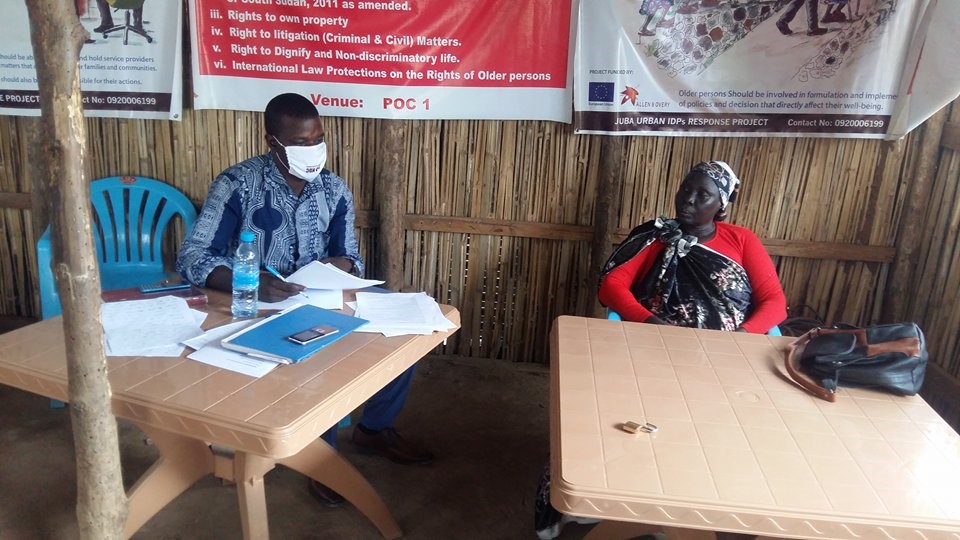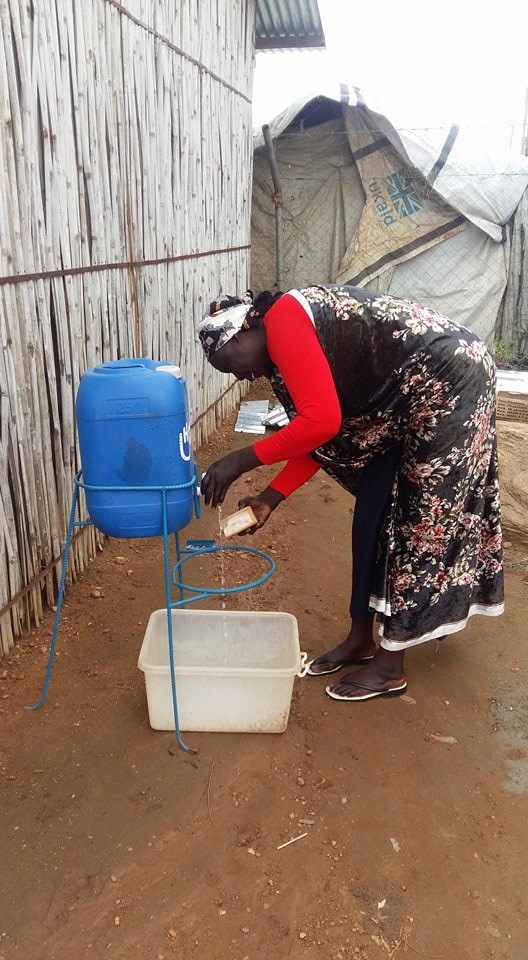A firsthand account: Facing the pandemic in South Sudan’s refugee camps

South Sudan’s largest city and capital, Juba, is now home to many people who have been forced to flee their homes due to the civil war. Many of them live in Protection of Civilian Sites (POCS), which are by nature crowded and at increased risk from coronavirus.
Here, Martha Daniel Lul, a 52-year-old widow and mother to eight children and 13 grandchildren, tells us in her own words what life is like in a POC site as coronavirus spreads.
Born in Pangak, Jonglei State in the Republic of South Sudan, Martha got married in 1984 at the age of 16 years old. She lost her husband in 1990 in the bush during Anyanya, one rebellion war, when she only had two children with him. While she never married again, as per Nuer tradition Martha was inherited by the brothers of her deceased husband and she produced the rest of the children to the name of the deceased husband.
Martha told us: “Previously like many other South Sudanese who grow up or lived their lives during Sudan and South Sudan civil war, we were displaced from our ancestral land in Pangak to Khartoum in around 1998. The difference is that, there was no camp like the one we are in today, the difference between the two displacements is that in Khartoum we were working but here we typically depend on UN and other NGO assistance, if they give you then you will take it, if they don’t give you then you will suffer- remember organisations operates based on budgets. The challenge here is that someone like me with many responsibilities can’t purely rely on NGOs for your personal needs and your extended families”.
Coronavirus in the Juba POC
“Here in the POCs there are campaigns and awareness on COVID-19 prevention, going on every day by different organisations, they have translated messages in various local languages for everyone to understand, and they have even provided us with soaps and containers for washing hands for each household. Although my relatives, my friends and I have not been affected by COVID-19, my main fear is that the way this camp is so congested and crowded if Coronavirus reaches here, we will all die helplessly. Here in the POCs we are only relying on temporary facilities as clinics and they cannot manage all of us. We are scared”.

Challenges Posed by COVID-19
“As older persons, we like to move and visit our friends to chat with them but now, we are being told to minimise and stop our movements during this COVID-19 period, but it’s making us isolated and traumatised. We were given two months food ration by a humanitarian agency and were told that we will have to wait till June 2020 but the food received is about to get finished within the first month I do not know what is going to happen."
“The food we’re given is not enough, especially for us older people. I used to buy other foods like fish, meat or eggs using part of the profit from my business, but now that we are in lockdown I cannot do anything, all the stores and shops in the town are closed. It has paralysed my business. I was thinking of starting to collect firewood from the bushes to sell here in the POCS but the firewood collection point is very far and I cannot manage with my age. It’s only young people and those who are still strong who can do. Indeed, life is very challenging currently, I have cut off the diet I use to have, now I purely rely on beans from the ration but I think it will have implications for my body."
"One of the biggest challenges we have in the camp here is that our community leaders are also displaced persons. They are also vulnerable and depend on UN and NGOS support as well, they can’t help us unless maybe by disseminating information on COVID-19. Also, if COVID-19 ends and schools reopen, how will I assist my grandchildren? It is challenging."
“Our biggest fear currently in the camp is coronavirus. If I am affected, I don’t know how I will survive. I strongly commend all partners that continue with the campaigns and awareness about COVID-19 they should be done on all platforms especially through the radios”.
Learn more about our COVID-19 response in South Sudan and the Africa region
Read more stories from the ground
Read more of the latest news and stories on our work in combating the coronavirus in low to middle income countries.
Help us to continue supporting older people around the world
Whether with better healthcare, a secure income or life-saving aid – your gift could help change lives.
 Follow us on social media
Follow us on social media
Keep seeing our stories or ask us a question - connect on Facebook and Twitter.
